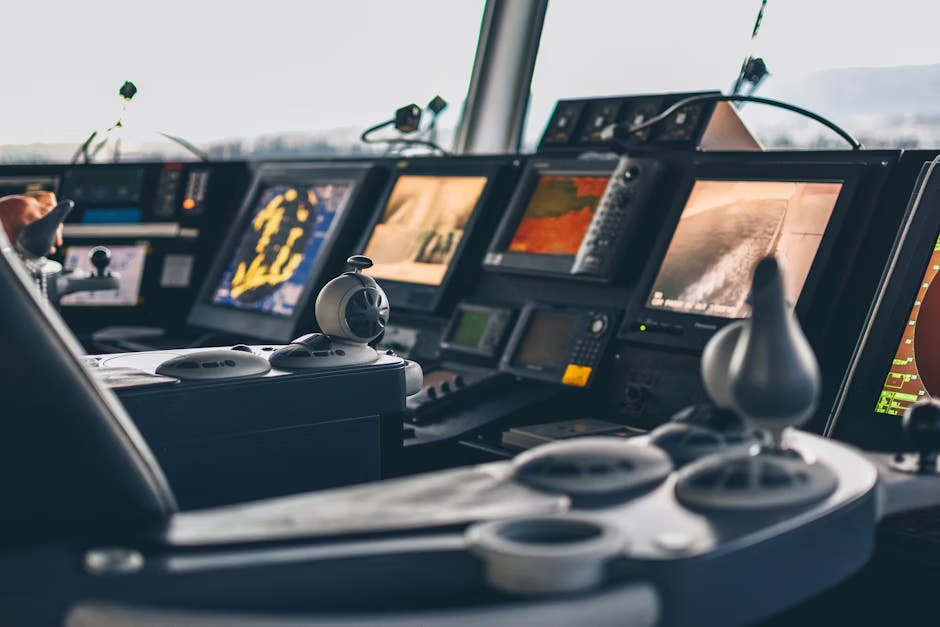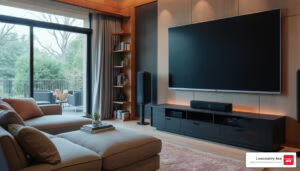Charleston Marine Electronics: Top 5 Essential Wonders
Charleston marine electronics are essential for anyone navigating the waters around this beautiful coastal city. With the right technology, you can improve your safety, enjoy smoother voyages, and make the most of your time on the water. Key components include:
- Chartplotters: For precise navigation using electronic maps.
- Fish Finders: To locate schools of fish quickly and easily.
- Marine Radar: Stay aware of other vessels and potential obstacles.
- Boat Autopilots: Maintain course without constant manual input.
- Marine Instruments: Monitor speed, depth, wind, and other vital data.
The Lowcountry Ace team is ready to guide you through the essentials of Charleston marine electronics, leveraging my experience in the field. Let’s explore how you can equip your boat to meet your unique needs and improve your marine experience.
Essential Marine Electronics for Charleston
Navigating Charleston’s waters requires more than just a good compass. Charleston marine electronics can transform your boating experience, making it safer, more efficient, and even more fun. Let’s explore some must-have gadgets for your vessel.
Chartplotters
Chartplotters are like GPS for your boat. They use electronic maps to help you steer Charleston’s coastal waters with ease. Whether you’re heading to a hidden fishing spot or cruising to a nearby island, chartplotters keep you on course.
These devices are especially useful in Charleston, where waterways can be tricky to steer. With a chartplotter, you can avoid shallow areas and obstacles, ensuring a smooth journey.
Marine Radar
Marine radar is your eyes in the fog or dark. It helps you see other vessels, landmasses, and weather formations, even when visibility is low. This is crucial in Charleston, where sudden weather changes are common.
Having marine radar means you can boat safely, knowing what’s around you at all times. It’s like having a sixth sense on the water.
Fish Finders
If fishing is your game, a fish finder is your best friend. These devices use sonar to locate fish beneath your boat. In Charleston’s rich fishing waters, a fish finder can make the difference between a good day and a great day.
You’ll spend less time searching and more time catching, making your fishing trips more productive and enjoyable.
Boat Autopilots
Boat autopilots are like cruise control for your boat. They keep your vessel on a set course, freeing you to enjoy the view or manage other tasks. This is particularly useful for long journeys or when navigating busy waters.
In Charleston, where tides and currents can be challenging, an autopilot helps maintain your course with precision, reducing the effort needed to steer.
Marine Instruments
Marine instruments are the dashboard of your boat, providing vital information like speed, depth, wind direction, and more. These tools help you make informed decisions on the water.
In Charleston, where conditions can change quickly, having up-to-date information at your fingertips is crucial. Marine instruments ensure you’re always in the know.
With these essential Charleston marine electronics, you’re equipped for any trip the waters throw your way. Each piece of technology plays a vital role in enhancing your boating experience, offering safety, convenience, and enjoyment.
Next, we’ll explore navigational electronics and how they guide your journey on Charleston’s scenic waters.
Navigational Electronics: Guiding Your Journey
Navigational electronics are the backbone of a successful boating trip in Charleston’s waters. These tools, including satellite navigation systems and nautical charts, ensure you know exactly where you’re going and how to get there safely.
Satellite Navigation
Satellite navigation systems, often known as GPS, are an essential part of modern boating. They provide real-time positioning data and can guide you through Charleston’s intricate waterways with ease. Whether you’re exploring the Ashley River or heading out to the Atlantic, satellite navigation keeps you on track.
These systems are particularly valuable in Charleston, where the coastline is dotted with marshes and tidal creeks. With satellite navigation, you can confidently steer these areas, avoiding hazards and finding the best routes.
Nautical Charts
Nautical charts are detailed maps of the sea, showing water depths, shorelines, and underwater features. They are crucial for safe navigation, helping you steer clear of shallow areas and submerged obstacles.
In Charleston, where tides can drastically alter water levels, having accurate nautical charts is essential. They provide a visual guide to your surroundings, ensuring you remain in safe waters.
Modern navigational electronics often integrate these charts, allowing you to view them on your chartplotter or GPS device. This integration makes it easier to plan your journey and adjust your course as needed.
Integrated Systems
Many boats now feature integrated navigational systems that combine satellite navigation, nautical charts, and other marine instruments. These systems provide a comprehensive view of your journey, displaying everything you need to know on a single screen.
In Charleston, where conditions can change quickly, having all your navigational tools in one place is a significant advantage. It reduces the need to switch between devices, allowing you to focus on the journey ahead.
Navigational electronics are your trusted companions on the water, guiding you through Charleston’s scenic and sometimes challenging waters. With these tools, every journey becomes an trip, full of findy and enjoyment.
Next, we’ll dig into the importance of proper installation and maintenance of marine electronics to ensure they perform at their best.
Installation and Maintenance of Marine Electronics
Proper installation and maintenance are crucial for keeping your Charleston marine electronics in top shape. It ensures that your navigational tools, communication devices, and entertainment systems work flawlessly every time you set sail.
Installation Done Right
Installing marine electronics isn’t just about connecting wires. It’s about understanding your boat’s unique layout and ensuring each device is optimally placed and securely fastened. Certified technicians bring expertise to this process. They follow industry standards to make sure your equipment is installed safely and efficiently.
A well-done installation means fewer problems down the line. It saves you time and money by reducing the need for repairs or adjustments. Plus, it gives you peace of mind knowing your electronics are reliable when you’re out on the water.
Troubleshooting and Repair
Even the best systems can encounter issues. That’s where troubleshooting and repair come in. Whether it’s a faulty GPS signal or an audio system glitch, having skilled technicians diagnose and fix the problem is essential.
Lowcountry Ace provides expert troubleshooting services. They can quickly identify issues and offer solutions to get you back on track. From battery chargers to solar panels, their team handles it all with precision.
Certified Technicians: Your Trusted Experts
When it comes to marine electronics, certification matters. Technicians with certifications from organizations like the National Marine Electronics Association (NMEA) have proven their skills and knowledge. They understand the complexities of marine systems and how to keep them running smoothly.
In Charleston, having certified professionals is especially important. The area’s unique waterways and weather conditions require electronics that are both robust and reliable. Certified technicians ensure your systems meet these demands.
Regular Maintenance for Longevity
Regular maintenance is the key to extending the life of your marine electronics. Simple tasks like cleaning connections, checking for corrosion, and updating software can prevent larger issues.
At Lowcountry Ace, the helpful team can guide you on maintenance best practices. They offer advice and support to help you keep your electronics in perfect working order.
Investing in proper installation and maintenance of your marine electronics is essential for a safe and enjoyable boating experience in Charleston. Next, we’ll explore the local expertise that makes Charleston a hub for marine electronics.
Local Expertise in Charleston Marine Electronics
When it comes to marine electronics, Charleston is a treasure trove of local expertise. The helpful team at Lowcountry Ace is at the forefront of this field, offering professional certifications and expert advice to ensure your boating experience is seamless and enjoyable.
Why Choose Lowcountry Ace?
Lowcountry Ace is more than just a hardware store; it’s a community hub for boating enthusiasts in Charleston. With a focus on personalized service, their team is dedicated to helping you find exactly what you need for your marine electronics setup. Whether you’re a seasoned captain or new to boating, their friendly staff is ready to assist you every step of the way.
Certified Professionals You Can Trust
In marine electronics, having certified professionals is crucial. Certifications from reputable organizations, like the National Marine Electronics Association (NMEA), signify a high level of expertise. At Lowcountry Ace, their team includes certified technicians who are well-versed in the latest technologies and installation practices. This ensures that your equipment is installed correctly and functions reliably, even in Charleston’s unique marine environment.
Expert Advice for Your Boating Needs
Navigating marine electronics can be daunting, but with Lowcountry Ace, you’re never alone. They offer expert advice custom to your specific needs. Whether you’re looking to upgrade your navigation system, improve your onboard entertainment, or install new communication devices, their knowledgeable staff provides insights and recommendations to match your budget and preferences.
Community-Centric Approach
Lowcountry Ace prides itself on being a cornerstone of the Charleston community. By supporting local events and initiatives, they foster a sense of belonging and connection among boating enthusiasts. This community-centric approach not only strengthens ties but also ensures that you receive the best possible service and support.
Charleston’s marine electronics scene thrives on the expertise and dedication of local businesses like Lowcountry Ace. Their commitment to quality, service, and community makes them a go-to resource for all your boating needs. Next, we’ll dive into some frequently asked questions about marine electronics to further improve your understanding.
Frequently Asked Questions about Marine Electronics
How much does a marine electronics technician earn in the US?
In the United States, marine electronics technicians are skilled professionals who install, maintain, and repair electronic systems on boats. The average hourly pay for a marine electronics technician can vary based on experience, location, and certifications. Typically, technicians earn between $18 and $30 per hour. Those with advanced certifications or extensive experience can command higher wages, reflecting their expertise in this specialized field.
What are marine electronics called?
Marine electronics encompass a wide range of devices and systems designed to improve the safety, navigation, and enjoyment of boating. Some of the most common marine electronics include:
- Chartplotter: A device that uses GPS technology to display electronic nautical charts, helping captains steer safely.
- Marine VHF Radio: Essential for communication on the water, these radios are used for contacting other vessels and emergency services.
- Autopilot: A system that automatically steers the boat, allowing the captain to focus on other tasks or simply enjoy the journey.
Each of these devices plays a crucial role in ensuring a smooth and safe boating experience.
What is a marine electronics technician?
A marine electronics technician is a specialized professional responsible for the installation, maintenance, and repair of electronic systems on boats and ships. Their duties include:
- Installing navigation and communication equipment
- Troubleshooting and repairing electronic systems
- Conducting routine maintenance to ensure equipment reliability
These technicians often work on both recreational and commercial vessels, ensuring that all electronic systems function correctly and efficiently. Their expertise is vital for the safety and operational effectiveness of marine vessels.
Conclusion
At Lowcountry Ace, we pride ourselves on being more than just a hardware store. We’re a cornerstone of the Charleston community, offering not just products but also exceptional customer service and local convenience.
Our location at the Riverland Market on Folly Road makes us easily accessible to the James Island and Folly Beach areas. Whether you’re a DIY enthusiast, a professional builder, or a passionate angler, we have everything you need under one roof. From tools and building materials to specialized fishing gear and marine electronics, our shelves are stocked with high-quality items custom to meet your needs.
Customer service is at the heart of what we do. Our helpful team is always ready to provide expert advice and assistance. Whether you’re looking for the perfect tool for your next project or need guidance on selecting the right marine electronics for Charleston waters, we’re here to help. We understand the importance of making informed choices, and we’re committed to ensuring a satisfying shopping experience for every customer.
For those who prefer the convenience of shopping from home, we offer a home delivery service. Orders above $50 qualify for free delivery within a 5-mile radius, ensuring you get what you need without the hassle.
We invite you to explore our range of products and services, especially our fishing supplies for Charleston waters. Thank you for choosing Lowcountry Ace. We look forward to serving you and being a part of your next trip on the water!
Lowcountry Ace Hardware: Your one-stop shop for home improvement. We offer quality products from trusted brands and expert advice from our experienced staff. Located on James Island, visit us for tools, hardware, fishing gear, power tools, building materials, grills & smokers, electrical and plumbing supplies, and more.






